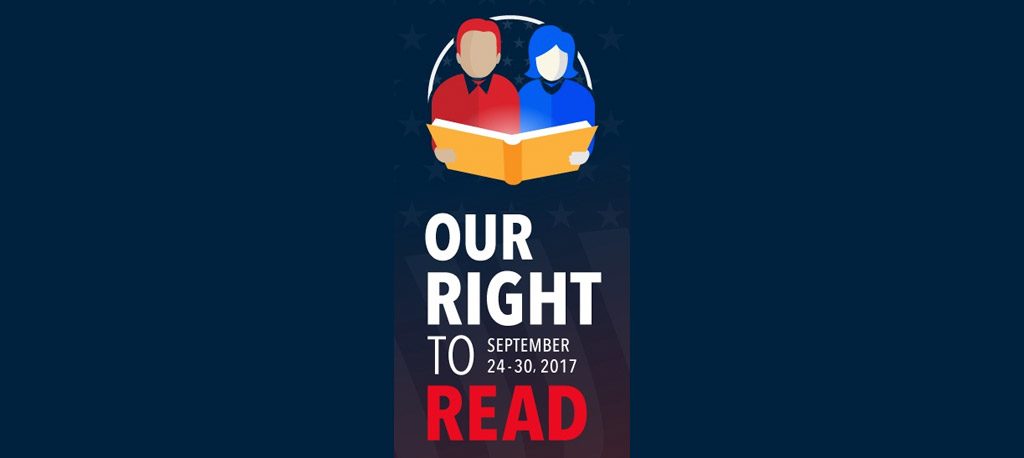“Censorship is like the monster
under the bed. You never know what
will trigger it, and you’ve got to be
ready.” —ReLeah Cossett Lent
Banned Books Week, which runs September 24-September 30 this year, is the annual celebration of the freedom to read. For this year’s celebration, NCTE and the coalition of organizations that sponsors Banned Books Week will emphasize the importance of the First Amendment, which guarantees our inherent right to read . NCTE’s Intellectual Freedom Center offers advice, helpful documents, and other support to teachers and schools faced with challenges to texts or teaching methods used in their classrooms and schools.
The NCTE Principles for Intellectual Freedom in Education were approved by the NCTE Executive Committee in February 2014. These state, “All students have the right to materials and educational experiences that promote open inquiry, critical thinking, diversity in thought and expression, and respect for others. Denial or restriction of this right is an infringement of intellectual freedom.” NCTE encourages school communities to generate, implement, and follow policies and procedures for defending intellectual freedom at the classroom, institution, and system/campus levels to limit and/or address attacks on free expression. The following principles support the inclusion of agency, fairness, and multiple perspectives in the process of defending intellectual freedom in education. Each of these principles has been linked with resources that may help in your classroom.
The preservation of intellectual freedom in education depends upon the fostering of democratic values in the classroom, critical thinking stances and practices among teachers and students, open inquiry methods and access to information, and the exploration of multiple points of view.
The ReadWriteThink.org lesson plan A Case for Reading—Examining Challenged and Banned Books introduces students to censorship and then invites them to read a challenged book and decide for themselves what should be done with the book at their school.
As trained professionals, educators are qualified to select appropriate classroom materials and resources from a variety of sources given their teaching goals and the needs and interests of the students they serve.
The Language Arts article “Focus on Policy: Intellectual Freedom” outlines details on banning incidents from this decade, the importance of selection, and suggestions for overcoming text challenges. The article includes sidebars that list additional resources.
The Guidelines for Selection of Materials in English Language Arts Programs presents criteria and procedures that ensure thoughtful teacher selection of novels and other materials.
Professional educators, drawing upon their training and content knowledge, should play an integral role in the curriculum design process at the district and school levels.
NCTE crafted a Resolution on the “Critical Role of Teachers in the Selection and Implementation of Reading Programs and Policies.” This resolution reasserts the authority of teachers as professionals who make substantive decisions regarding literacy materials and instruction.
Educational communities should prepare for challenges to intellectual freedom with clearly defined policies and procedures that guide the review of classroom materials and resources called into question. In the creation and enactment of these policies and procedures, educators’ knowledge and expertise should be solicited as integral, valuable, and necessary.
As defenders of the right to read, today’s teachers find themselves navigating both new and old challenges to the intellectual choices available to this generation. “Defending the Right to Read: A Modern Tale” shares a contemporary story of two educators who put their students’ freedoms first.
“Any book with any ideas of value
is probably going to be challenged
because somebody doesn’t like what’s
being said.”
—Kim Chism Jasper

